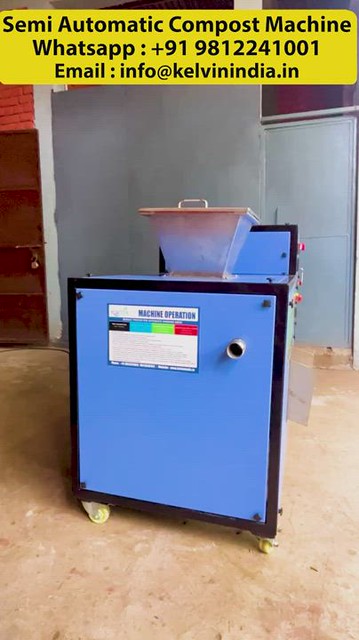Organic Compost Making Machine: Revolutionizing Organic Waste Management
Introduction:
In today’s world, where environmental concerns are on the rise, findin organic compost making machine g sustainable solutions for waste management has become crucial. One such solution is the use of organic compost making machines. These innovative machines have revolutionized the way we handle and recycle organic waste, converting it into valuable compost that can be used to enrich soil fertility and promote healthier plant growth.
1. Manufacturing organic compost making machine Process:
The manufacturing process of an organic compost making machine involves cutting-edge technology and precision engineering. It begins with the collection of organic waste materials such as food scraps, garden trimmings, agricultural residues, etc. These raw materials are then loaded into the machine’s input hopper.
Inside the machine, a series of interconnected chambers facilitate the decomposition and breakdown of these organic materials through a process called aerobic fermentation. This controlled environment

ensures optimal microbial activity that accelerates decomposition while minimizing odor emissions.
2. Key Features:
The equipment for producing organic soil amendments offers several key features that set them apart from traditional methods of composting:
a) Time Efficiency: The advanced technology employed in these machines speeds up Equipment for producing organic soil amendments the decomposing process significantly compared to traditional composting methods.
b) Space Saving: Unlike bulky outdoor compost heaps or pits, these compact machines ca Organic compost production machinery n fit comfortably in limited spaces like residential gardens or commercial facilities.
c) Odor Control: By maintaining a sealed system throughout fermentation processes combined with efficient odor treatment technologies integrated within their design structure, these machines effectively minimize unpleasant odors associated with conventional compost piles.
3. Advantages:
Using an organic compost production machinery offers numerous benefits when compared to other waste disposal options or even manual backyard composter setups:
a) Environmentally Friendly: By recycling and transforming organic organic compost making machine waste into nutrient-rich compost instead of sending it to landfills or incinerators, these machines contribute to reducing greenhouse gas emissions and alleviate pressure on overloaded sanitation systems.
b) Cost-Effective: Investing in an organic compost making machine can lead to Technology for converting organic waste into compost long-term cost savings by reducing the expense of purchasing fertilizers and soil amendments.
c) Enhanced Soil Health: The high-quality compost produced through these machines enriches the soil with essential minerals, improving its structure, water-holding capacity, and overall fertility. This promotes healthier plant growth without relying on synthetic chemicals.
4. How to Use:
Using an organic compost making machine is a relatively straightforward p fermentation equipment rocess. Once the waste materials are loaded into the input hopper, the machine takes care of the rest automatically. It operates fully autonomously, constantly monitoring temperature levels and adjusting airflow as required.
Periodic maintenance tasks such as removing any residual non-organic matter or replenishing necessary microbial cultures may be needed based on specific model requirements but are minimal compared to traditional manual methods.
5. Selecting the Ri fermentation equipment ght Product:
When choosing an organic compost ma organic compost making machine king machine for your needs, consider factors such as:
a) Capacity: Determine how much waste you generate regularly to select a suitable size that accommodates your volume requirements.
b) Durability: Look for machines made from high-quality materials that can withstand consistent use over time without compromise.
c) Customization Options: Some models offer additional features like adjustable temperature control or moisture sensors for more precise fermentation settings to cater better to specific needs and optimize results accordingly.
Conclusion:
In conclu

sion, technology has provided us with innovative means of addressing challenges related to sustainable waste management. Organic compost making machines have emerged as effective tools in converting abundant organic waste into valuable resources that promote environmental preservation and sustainable agricultural practices. By investing in this technology-driven solution, we contribute towards creating a greener future while enjoying numerous benefits ourselves – whether it’s higher crop yields or prom

oting ecological balance within our immediate surroundings.
